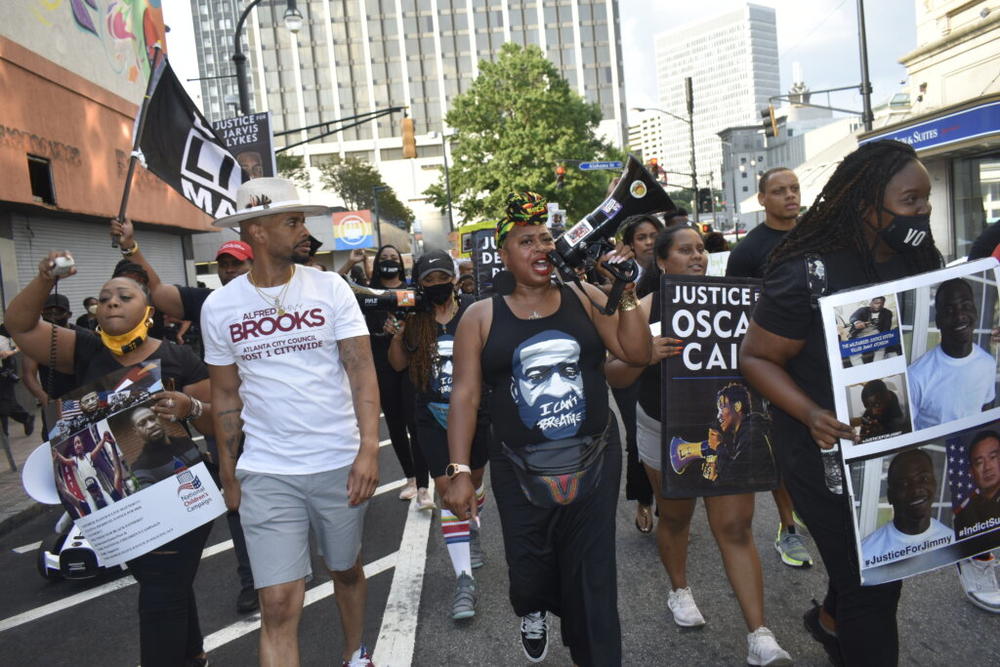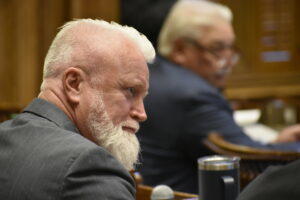
Caption
On Tuesday, the Georgia Senate Judiciary Committee advanced a controversial bill that would impose stiffer criminal penalties on protesters when violence or property damage occurs, puts local governments on the hook if protests turn violent and require a permit to hold rallies. Protesters marched down the streets of Atlanta on the anniversary of George Floyd’s murder.
Credit: Ross Williams/Georgia Recorder


